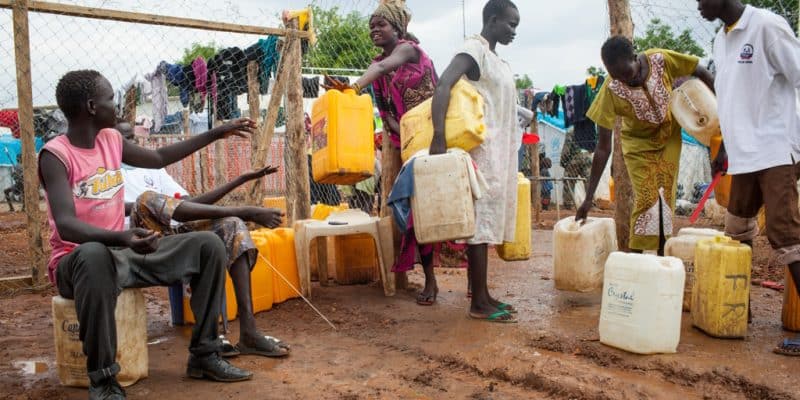As the challenges of access to safe drinking water and sanitation increase in line with demographic change and intensifying drought in East Africa, Malawi and South Sudan are reiterating their commitments to guarantee universal access for their populations to these essential services by 2030. On 21 August 2023, the governments of the two countries launched presidential pacts on water and sanitation.
Perhaps Presidential Pacts are the key to achieving Sustainable Development Goal 6 (SDG6) in East Africa? In any case, Malawi and South Sudan believe in it. On 21 August 2023, the Malawian and South Sudanese governments launched presidential pacts on water and sanitation, in conjunction with World Water Week in Stockholm, Sweden, which opened on 20 August and will run until 24 August 2023. The aim is to guarantee universal access to drinking water and sanitation for their populations by 2030.
Achieving this goal will improve public health, put an end to open defecation and strengthen climate resilience.
Presidential Pacts: What involvement for each State?
But to achieve these results, the two parties to the Presidential Pacts will each have to fulfil their commitments, “which include increased budget allocations, innovative sources of financing and comprehensive plans for the construction of vital water and sanitation infrastructure”, says the United Nations Children’s Fund (UNICEF).
In support of the $145 million in funding received from the World Bank, the Presidential Compacts will provide Malawi with a master plan for rebuilding water and sanitation infrastructure and building climate resilience following the unprecedented devastation caused by Cyclone Freddy. South Sudan has earmarked $56 million, equivalent to almost 2% of its Gross Domestic Product (GDP), to support its strategies under the agreements, which include empowering communities to end open defecation by 2030, and accelerating the 2014 Water Act to ensure a safe water supply.
Read Also – SOUTH SUDAN: Beijing finances 47 pumping stations for drinking water supply
Nigeria has announced its intention to act as a mentor to the pacts, lending its expertise to encourage the presidents of these two countries in the East Africa sub-region to make water and sanitation a priority. These presidential pacts are part of the “Heads of State Initiatives” project, an innovative effort to advance water and sanitation services worldwide, which was jointly launched during the Stockholm World Water Week by the Dutch government, IRC Wash, the Sanitation and Water for All (SWA) global partnership hosted by the United Nations (UN) and UNICEF.
These players will play an advisory role to the covenants, providing essential technical expertise and coordinating advocacy actions.
Inès Magoum






